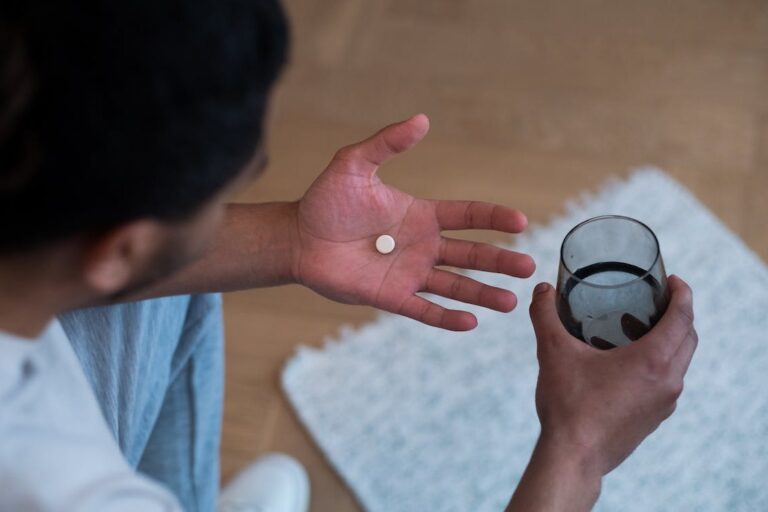In the quest to understand the complexities of addiction treatment, it’s key to explore the role of pharmacotherapy, which is the use of medications to treat addiction. This may come as a surprise to you, but pharmacotherapy is not just about ‘substituting one drug for another’; it’s about helping to stabilize brain chemistry, reduce cravings, and restore normal bodily functions.
Even more surprising might be the fact that pharmacotherapy is not in opposition to the 12-step philosophy or other forms of psychotherapy, but can be used in combination with them for more effective results. The 12-step philosophy highlights the importance of surrendering to a higher power and the strength of communal support in overcoming addiction. This spiritual and communal grounding, in conjunction with pharmacotherapy, can help you or your loved ones attain a more balanced and sustainable recovery.
Now, when it comes to the use of pharmacotherapy in the South African context, it’s important to note that this treatment method isn’t always first on the list. There is a prevalent belief that abstinence and willpower alone should suffice. But evidence-based research is challenging these notions, showing that a combination of therapies can offer a more comprehensive approach to treatment.
Take, for example, the use of methadone or buprenorphine in treating opioid addiction. These medications, when used under medical supervision, can help reduce cravings and withdrawal symptoms, making the path to recovery less arduous. When this is combined with the 12-step philosophy and cognitive-behavioural therapy, it can help address the physical, psychological, and spiritual aspects of addiction, enhancing the chances of long-term recovery.
As addiction treatment continues to evolve, it’s clear that a ‘one-size-fits-all’ approach doesn’t apply. Each individual’s journey is unique, and the treatment plan should reflect this.
Delving deeper into the complexities of addiction treatment, especially the role of pharmacotherapy, one quickly realizes it’s a field teeming with innovation and potential. Pharmacotherapy, or the use of medications to manage addiction, holds a crucial place in the modern approach to recovery, complementing and enhancing the effectiveness of other therapy forms.
Among the drugs currently used in pharmacotherapy, several stand out for their effectiveness in treating specific addictions.
• Buprenorphine and Methadone: These are primarily used in the treatment of opioid addiction. They help to curb cravings and alleviate withdrawal symptoms, creating a safer and more manageable path to recovery.
• Naltrexone: Used for both opioid and alcohol addiction, naltrexone blocks the euphoric effects and feelings of intoxication, allowing for a diminished desire for the substances.
• Acamprosate: Specifically for alcohol addiction, Acamprosate eases withdrawal symptoms like insomnia, restlessness, and anxiety.
This information, however, may give rise to several questions. Here are some of the most commonly asked ones:
- Q: Can pharmacotherapy lead to a new addiction?
A: When used under proper medical supervision, the risk of developing a new addiction is low. The goal of pharmacotherapy is to restore balance to the brain’s chemistry and reduce cravings, not to substitute one addiction for another.
- Q: Is pharmacotherapy enough for treating addiction?
A: While pharmacotherapy plays a critical role in managing addiction, it’s most effective when used as part of a comprehensive treatment plan that includes behavioural therapy and support systems.
- Q: How long does pharmacotherapy last?
A: The duration of pharmacotherapy varies depending on individual needs. Some people may require medication for a few months, while others may need it for years or even a lifetime.
The application of pharmacotherapy in addiction treatment within South Africa, despite its potential, is not as widespread as one might expect. Prevailing stigma, misunderstandings, and traditional beliefs in abstinence-based recovery often create barriers to its implementation. However, the tides are changing, and as the evidence supporting pharmacotherapy continues to mount, so too does its acceptance and usage.
There’s a growing recognition of addiction as a complex disorder that impacts both the brain and behaviour. Consequently, a multi-faceted approach to treatment, which includes pharmacotherapy, counselling, and support groups, is emerging as the gold standard. Pharmacotherapy in particular, can provide a much-needed anchor, mitigating the severe withdrawal symptoms and cravings that often derail recovery efforts.
Addiction, whether it’s yours or a loved one’s, can often feel like an insurmountable challenge. Yet, it’s crucial to remember that there’s a world of help available out there. Through an integration of pharmacotherapy, evidence-based therapy, and communal support, a path to recovery, as complex and individual as the person walking it, can be forged.
In conclusion, the role of pharmacotherapy in addiction treatment is becoming increasingly prominent and accepted. As we continue to build on the foundational tenets of the 12-step philosophy and incorporate cutting-edge treatment modalities, our understanding and treatment of addiction will only improve. Embracing this holistic approach could mean the difference between an endless cycle of addiction and a successful, sustainable recovery. In the words of the well-loved Serenity Prayer often recited in 12-step meetings, “God, grant me the serenity to accept the things I cannot change, courage to change the things I can, and wisdom to know the difference.” As we navigate the complex landscape of addiction recovery, this prayer serves as a reminder of the strength within us and the support around us, lighting our way towards a healthier future.








